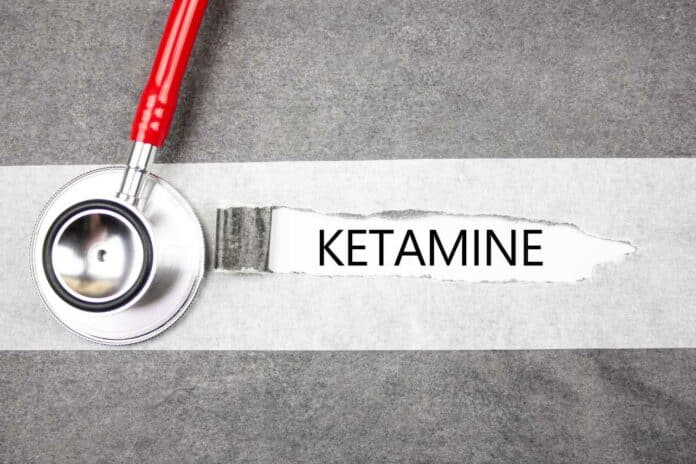Clinical uses for the multipurpose drug ketamine include anesthesia, pain relief, and fast-acting antidepressant. However, because of its dissociative properties, it is also abused recreationally. Recent rodent studies reveal the neural mechanisms underlying its actions, yet the effects of chronic ketamine exposure on brain-wide networks are still poorly known.
A new study by Columbia biologists and biomedical engineers mapped ketamine’s effects on the brains of mice. They discovered extensive changes in the brain’s dopamine system resulting from prolonged, repetitive use. The results support the idea of creating ketamine treatments that focus on particular brain regions as opposed to giving doses that cover the entire brain with the drug.
The whole-brain mapping data suggests that a safer method would be to target specific portions of the brain with ketamine rather than soaking the entire brain in it, as most therapies now do, to avoid unintentional effects on other dopamine regions of the brain.
The study discovered that when people use ketamine repeatedly, it can make certain parts of their brain change. It causes a decrease in dopamine neurons in the midbrain, which is linked to controlling mood. At the same time, it increases dopamine neurons in the hypothalamus, a part of the brain that manages essential functions like metabolism and balance in the body.
The first discovery that ketamine reduces dopamine in the midbrain suggests why using ketamine for a long time might make people show similar signs to those with schizophrenia, which is a mood disorder. The second finding that ketamine increases dopamine in the brain parts controlling metabolism helps us understand why it could help treat eating disorders.
Thanks to highly detailed data, scientists were able to track the impact of ketamine on dopamine networks across the brain. They discovered that while ketamine increased the density of dopamine axons in the brain’s cognitive centers, it decreased the number of dopamine axons, or nerve fibers, in the parts of the brain in charge of human hearing and vision. These fascinating results could explain the dissociative behavioral effects seen in ketamine-exposed people.
Malika Datta, a co-author of the paper, said, “The restructuring of the brain’s dopamine system that we see after repeated ketamine use may be linked to cognitive behavioral changes over time.”
Unlike most studies that observe the effects of acute exposure, this study examines daily exposure over up to ten days.
Measurably, the brain’s dopamine composition changed in a statistically relevant way only after ten days of daily ketamine use. Repeated exposure to the drug at two doses—one dose similar to the amount used to model treating depression in mice and another dose more akin to the dose that induces anesthesia—was evaluated by scientists for its potential effects. At both dosages, the drug’s effects on the dopaminergic system were apparent.
Bradley Miller, a Columbia psychiatrist and neuroscientist who focuses on depression, said: “Ketamine rapidly resolves depression in many patients with treatment-resistant depression, and it is being investigated for longer-term use to prevent the relapse of depression. This study reveals how ketamine rewires the brain with repeated use. This is an essential step for developing targeted treatments that effectively treat depression without some of the unwanted side effects of ketamine.”
Yannan Chen, a co-author of the paper, said, “The study is charting a new technological frontier in how to conduct high-resolution studies of the entire brain. It is the first successful attempt to map changes induced by chronic ketamine exposure at what is known as “sub-cellular resolution,” in other words, down to the level of seeing ketamine’s effects on parts of individual cells.”
Journal Reference:
- Malika S. Datta, Yannan Chen, Shradha Chauhan et al. Whole-brain mapping reveals the divergent impact of ketamine on the dopamine system. Cell Reports. DOI: 10.1016/j.celrep.2023.113491
